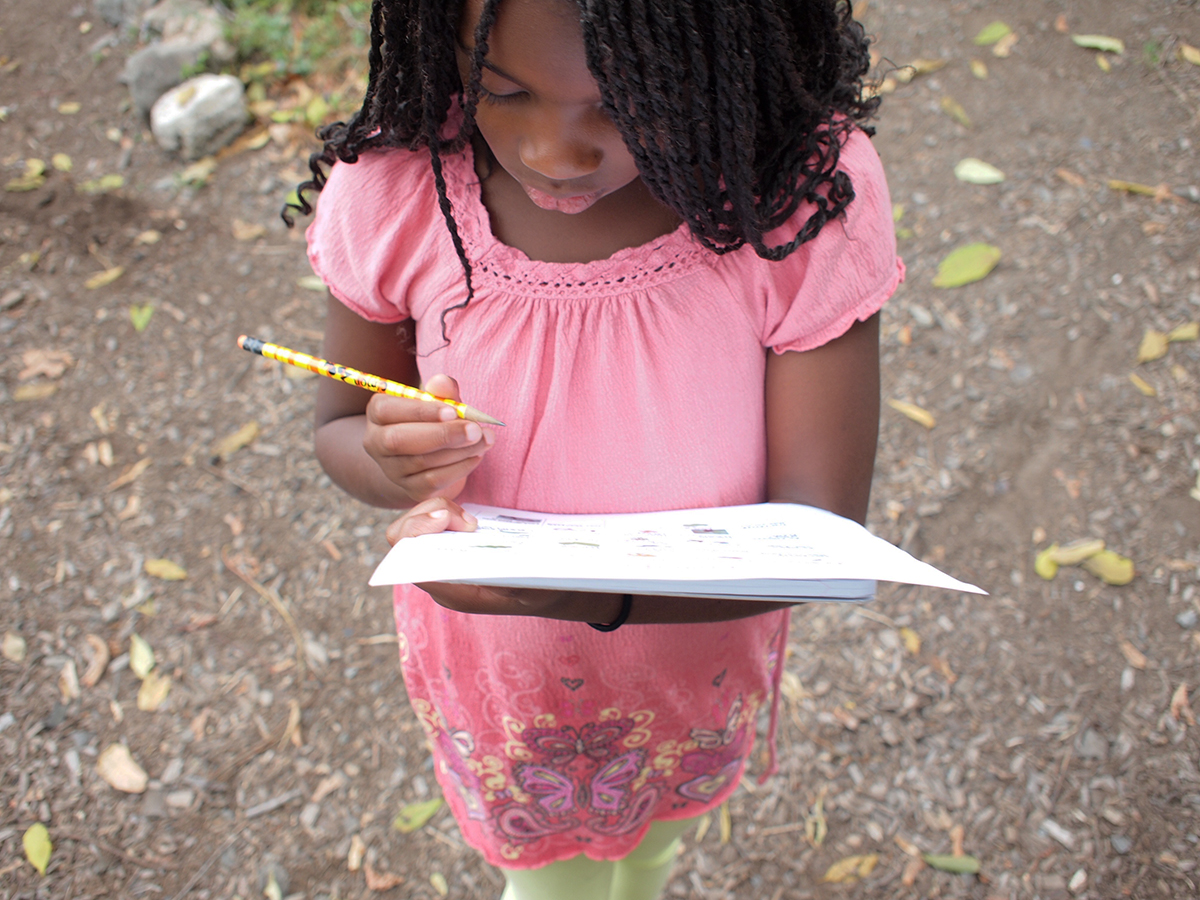WGBH Created an Outdoor Exploration Toolkit for Kids and Families

Photo by Bill Shribman
These days, a growing number of doctors are “prescribing” outdoor time to pediatric patients, in an effort to get kids and families moving and exploring nature. But while the practice is gaining popularity, it can also leave parents scratching their heads.
When WGBH Boston collaborated with the Education Development Center’s (EDC) Center for Children and Technology to study prescription programs around the country, for example, “We found that a lot of parents didn’t really have the time to get outside. They are limited in using public transportation to [reach] the green spaces they can access. They have concerns about safety in their neighborhoods. And they were really looking for structure and ideas for what they could do outside,” says WGBH’s Jessica Andrews.
Those pain points are exactly what WGBH’s latest endeavor is meant to address. The organization recently rolled out the Plum Landing Explore Outdoors Toolkit, which offers urban families a smorgasbord of ways to enjoy the natural world waiting beyond their doorsteps.
Plum Landing is a PBS Kids project that brings environmental science learning to six- to nine-year-olds. Andrews says EDC’s findings illuminated a new avenue for its programming.
“We saw outdoor prescription programs as a good pathway to reach urban kids and families,” Andrews says. “We saw it as an opportunity to bring some science learning into the programming that’s already happening.”
So using a grant from the National Science Foundation, WGBH and EDC created a set of hands-on activities for families and educators, plus animated videos, an accompanying app, and a Scouts-esque digital badge system. The whole thing is aimed at getting city kids moving, playing, and learning outside.
In one toolkit activity, for example, kids are asked to toss a Frisbee or paper airplane, then examine the plants and animals living in the area where it lands. In another, they’re tasked with pouring water over different surfaces—concrete, grass, dirt—to assess how its flow changes each time.
“We were really looking to come up with activities that work in urban settings,” Andrews explains. “You can do that in a little park, really anywhere where there’s a little bit of green space.”
In Boston, the Appalachian Mountain Club, which runs the Outdoors Rx prescription program, tested the resources with families partaking in its weekly guided activities, then reported back to WGBH with feedback. The finished product is now available for free, and assets for parents are available in both English and Spanish.
You can see the whole toolkit here.


